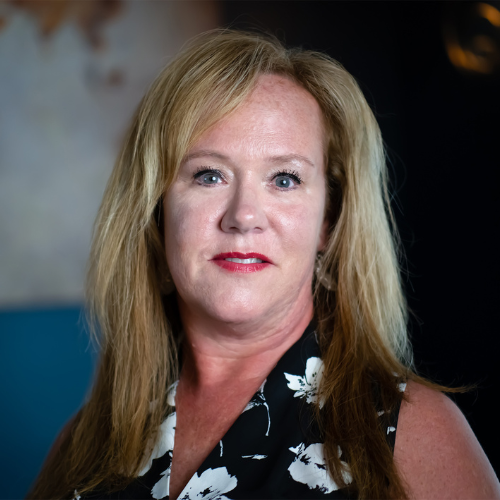Businesses need talent, but many recruiters are overlooking a crucial group: people with disabilities.
Canadian hospitality businesses have spent the last year playing a game of catch up.
In a world where pandemic labour shortages have reduced profits, increased operating costs, and created a climate of inferior customer service for hotel and accommodations businesses—according to the Hotel Association of Canada—businesses say they’re struggling to find and retain staff.[1]
That shortage isn’t exactly new. Ask Restaurants Canada, and they’ll tell you that, for years, they’ve seen signs pointing towards a growing lack of labour in the industry.[2] Young people account for about 40 per cent of food service workers, but that population has been shrinking for decades. Today’s teens are entering the work force later, and immigration—which the organization says has long provided a source of food service workers—is only now rebounding after pandemic delays.
“There are businesses that can't fully open because they don't have the resources to do so,” says Jodi Delage, Director of Operations at Niagara Training & Employment Agency Inc, or NTEC.
And yet, there is an eager and willing segment of the population ready to fill that labour shortage: people with disabilities. Approximately 6.2 million people in Canada—one in five—live with a disability.[3] And while an estimated 645,000 of them have the potential to work, they are 20 per cent less likely to be employed than non-disabled candidates.[4]
In Ontario alone, around 2.6 million people—one in four—are living with a disability.[5] NTEC’s job is two-fold: to help people with disabilities seek competitive employment and to provide competitive employees to local businesses.
The ministry-funded organization supports people with mental health and developmental disabilities through various programs and initiatives designed to help them secure, and succeed in, employment. One of those programs is a six-week, classroom-style job readiness program that teaches students basic interview and resume-writing skills as well as wellness habits that keep them healthy on and off the job. Pay a visit to NTEC’s Port Robinson office, and you’ll come across raised gardens brimming with vegetables that serve as a teaching ground for students who want to work in horticulture. Helping those who are referred to the organization, Delage says, means teaching them the skills they need to become competitive candidates.
“Previously, [hiring someone with a disability] was very much tokenism,” says Delage. “You hired someone just because it was the right thing to do, […] but really, that isn’t very respectful to the individual or to the work. We look at the local business community as a client too, because they also need to be satisfied.”
Through NTEC’s work experience programs, participants receive funding to work at local businesses with no cost to the employer. The returns on programs like these, Delage says, are promising. Some of her clients who had previously received Ontario Disability Support Program, or ODSP, payments have even stopped collecting them, because they’re earning enough money at their jobs.
Hiring people with disabilities doesn’t just benefit individuals — it can also benefit business, says Delage, who adds that “the more time you invest in a person with a disability, the [bigger] the pay-off.”
Yet many businesses don’t realize the value of hiring someone with a disability. In a 2014 study conducted by the Institute for Corporate Productivity, employees with developmental disabilities were shown to “contribute to higher productivity, lower absenteeism, and increased customer loyalty.”[6] As employees, they tend to be safer on the job because they take less risks than employees without disabilities, Delage says. They become role models for community members, and customers, with disabilities.
“When you hire someone with a disability, you're expanding that consumer market, right,” says Delage. “Think about the amount of people with a disability and how many people have a family member with a disability. You're more inclined to do business with someone if you know they're an inclusive employer.”
People with disabilities face barriers to entering the workplace that abled people do not. Barriers can be physical—a lack of ramps or push-button doors in a building, and signage without braille translations, to name a few—but they can also be social. Stereotypes, stigmas, and social cues are all examples of social barriers.
Fortunately, barriers can be removed. An employee with Down Syndrome who fatigues easily, for example, might need to work shorter shifts. A worker who struggles to conceptualize time might need a break buddy who can keep them on schedule assigned to them. In Delage’s eyes, it’s the businesses that work with their employees and get to know them that are in the best position to remove barriers.
“Successful employers know who their employees are, right? They get to know them as people, whether they have a disability or not,” she says.
Expert Contributor

Jodi Delage
Director of Operations for Niagara Training & Employment Agency (NTEC) and Niagara Support Services
Having spent over 30 years in Niagara’s developmental services sector, Delage specializes in transitioning persons with disabilities into the workforce and working with employers to understand the business case for diversity, dispel myths surrounding hiring someone with a disability, and developing strategies to support inclusion.





